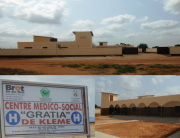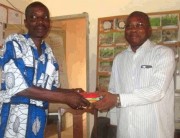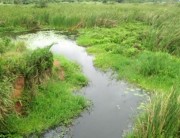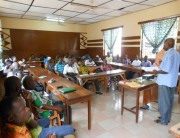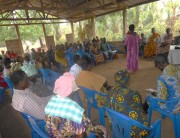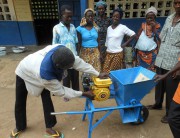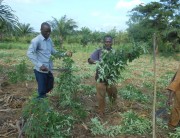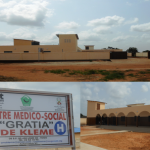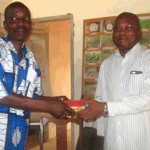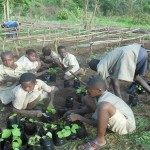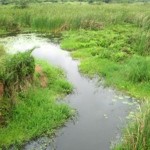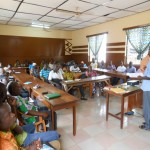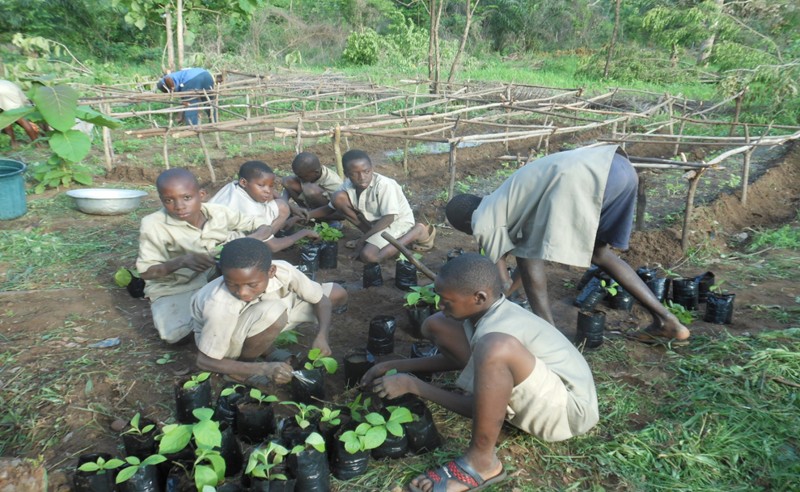
Partial view of the pupils of the Primary School of Dzogbépimé during the transplanting of teak seedlings into pots.
On 5 and 8 April 2016, pupils from the Primary School of the village of Dzogbépimé in Avé prefecture were introduced to the techniques of setting up nursery, picketing and teak transplantation in their school in order to get them to acquire the aforementioned basic techniques.
The prefecture of Avé (about 50km north-west of Lomé) is characterized by a grassy savannah, due to an abusive exploitation of the vegetation and a rapidly growing population.
CREDI, in its action for the management of the environment and natural resources, works to reconstitute and protect the vegetation cover in its zones of intervention that are the maritime regions and plateaus. In order to accomplish its task, it has accompanied producers who want to do reforestation and communities for several years.
To ensure that the practice is perpetuated, CREDI also includes schools in its approach by introducing students to practice. This strategy aims to teach them at the primary school level the importance of trees in the maintenance of life and to train them in protecting vegetation and the environment.
Thus, the students of the Dzogbépimé Public Primary School, assisted by the technical team of CREDI and the teachers, were trained to set up a plank nursery, picketing and teak transplantation.
Six weeks after the establishment of the nursery, the students returned to the techniques of its establishment before starting the transplanting of teak seedlings into plastic pots.
The teak potted plants thus formed will be watered by these students for three (03) to four (04) weeks before transplanting into the reforestation reserve set up for reforestation. They have by the way reviewed the rules to follow when transplanting so that everyone remembers the method again before the day of transplantation.
CREDI in its support to reforestation in schools initiated one hundred and fifty-five (155) students in four (04) schools in Avé prefecture to teak nursery and transplantation techniques.
However, the remoteness of the water points of certain schools sometimes impedes the regular watering of the boards. This reduces the seed germination rate and thus the number of plants planted.

